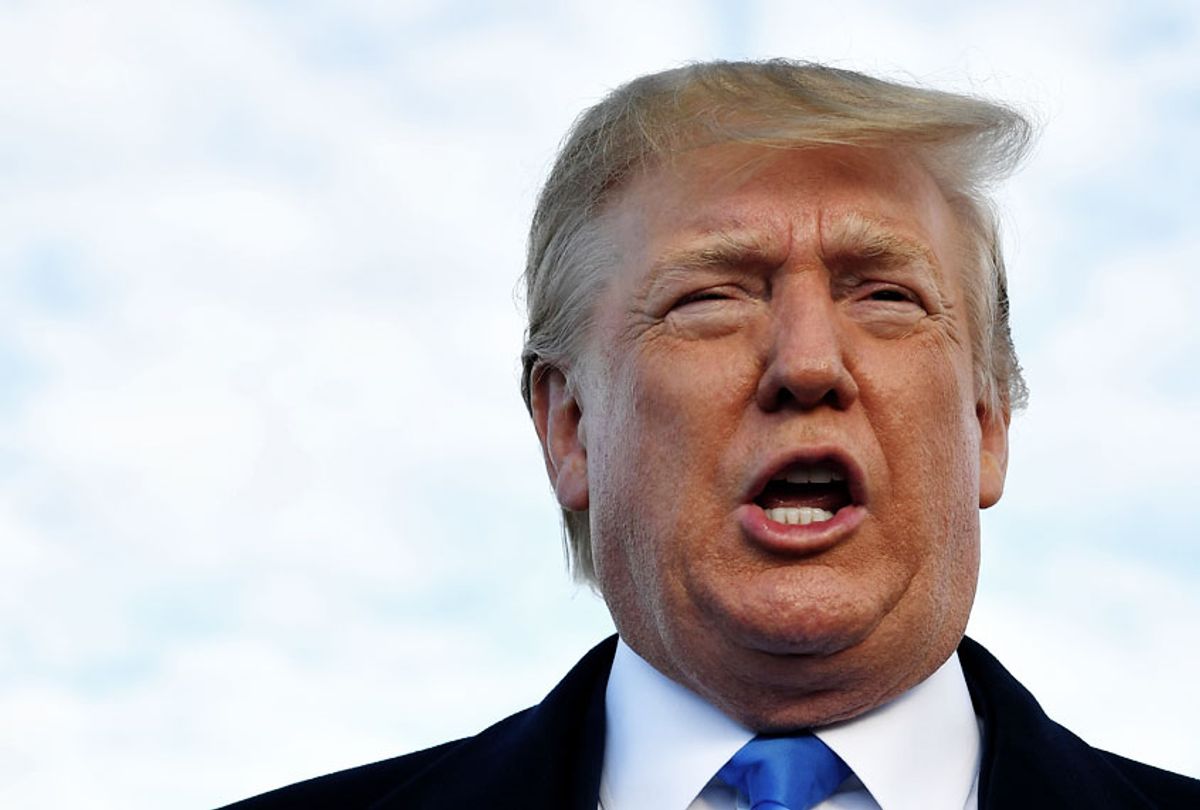President Donald Trump's administration introduced a new rule Monday that would make it harder for low-income immigrants who receive food stamps or other public benefits, or are likely to do so in the future, to stay in the country legally.
The "public charge" regulation, pushed by White House senior adviser Stephen Miller and other immigration hardliners, would require immigrants applying for a change in immigration status, like a green card, or those applying to come to the U.S. to prove they are unlikely to ever need certain forms of taxpayer-funded assistance.
The sweeping 837-page rule, which has been in the works for a year, will be effective Oct. 13. It would favor wealthier applicants in the nation's immigration system and could dramatically impact poor immigrants who may be forced to choose between accepting public assistance and living and working in the country legally.
In a press conference announcing the rule, acting Director of U.S. Citizenship and Immigration Services (USCIS) Ken Cuccinelli said "the law has required foreign nationals to rely on their own capabilities and the resources of their families, sponsors and private organizations in their communities to succeed."
"However, Congress has never defined the term 'public charge' in the law and that term hadn’t been clearly defined by regulation. That is what changes today with this rule," he continued.
The measure defines a "public charge" as an immigrant who receives one or more public benefits for more than 12 months during a 36-month period. Receiving two public benefits in one month counts as two months, the final rule notes.
It defines public benefits as cash benefits, including Supplemental Security Income (SSI); Temporary Assistance for Needy Families (TANF); the Supplemental Nutrition Assistance Program (SNAP); most forms of Medicaid; and a variety of public housing programs.
The regulation would exclude military members, their spouses and children; asylum-seekers and refugees; pregnant women and immigrants under the age of 21; and beneficiaries of Medicare Part D.
Pressed on whether the rule would undermine the poem emblazoned on a plaque at the Statue of Liberty — "give me your tired, your poor" — Cuccinelli disagreed.
"I do not think by any means we're ready to take anything off the Statue of Liberty," he said, noting that roughly 400,000 people seeking to adjust their immigration status could be subjected to a "meaningful analysis of whether they're likely to become a public charge."
"We certainly expect people of any income to be able to stand on their own two feet," Cuccinelli added.
Receiving benefits before the rule goes into effect will not count negatively against applicants, Cuccinelli said.
Cuccinelli described the rule as a win for Trump on Monday, stating: "President Trump has once again delivered on his promise to the American people to enforce long-standing immigration law."
DHS noted it received "226,077 comments on the proposed rule, the vast majority of which opposed the rule."
The regulation will not consider enrollment in the Children's Health Insurance Program (CHIP), which provides low-cost health coverage to children in families that earn too much to qualify for Medicaid, toward a public charge determination.
The use of the WIC program, a supplemental food program for low- to moderate-income pregnant women, infants and children, will not contribute to a public charge determination.
The final rule also dropped beneficiaries of Medicare Part D, a program which helps seniors pay for prescription drugs, from a list of restricted benefits.
The measure is the latest part of the Trump administration’s widespread efforts to overhaul the nation's legal and illegal immigration system. Although its aggressive moves to crack down on illegal immigration have provoked the most attention and outrage, the administration has also taken significant steps to curb legal immigration — and the public charge rule represents its most drastic attempt yet.
The controversial policy is already drawing legal challenges, with one pro-immigrant group, the National Immigration Law Center, announcing earlier Monday that it planned to file a lawsuit in court.
"This latest racially-motivated policy will have a dire humanitarian impact, forcing some families to forego critical life-saving health care and nutrition," Marielena Hincapié, the group's executive director, said in a statement.



Shares